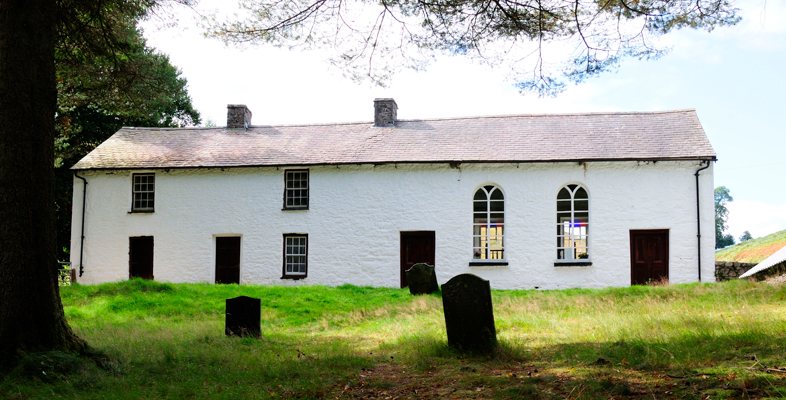10 Newspapers as sources
Now let’s put the knowledge you have gained about Methodism in Wales to the test by doing some research on the Welsh Newspapers Online database (WNO). This is a free resource hosted by the National library Wales, which allows you to search through thousands and thousands of items published in dozens of Welsh newspapers between 1804 and 1919.
Newspapers are an invaluable window onto a wide variety of events, individuals, developments and topics. However, they also present some challenges for historians, one of which is the fact that you usually a good understanding of your topic before you start using them so that you can make sense of what you find. That is what the activity below gives you a chance to practice.
Activity 8
Go to Welsh Newspapers Online [Tip: hold Ctrl and click a link to open it in a new tab. (Hide tip)] and search for information on Methodists in Wales in the period between 1804 (the furthest the database goes back) and 1850. You will find advice below on how to search. Then pick one or two of the articles you have found, and use what you have learned about Methodism in Wales to try to put them into context and understand what they are about.
What are your one or two articles about? What do they tell us about Methodism in Wales during the first half of the nineteenth century?
How to search for data
Welsh Newspapers Online contains a wealth of information relevant to Wales in the nineteenth and early twentieth centuries. However, because the database contains such a wealth of material, keyword searches can generate a great many results. You will need, therefore, to be very clear about what you are searching for otherwise you could waste a lot of time looking through irrelevant material.
The database offers a number of options to narrow your results. Below are a few suggestions for searching in ways that will help you manage your results and find relevant information more quickly. I have concentrated on the ‘Search’ function only, although WNO also offers the option to ‘Browse’. Browsing can be a useful part of the research process as sometimes you stumble upon a reference to events or developments you might not think to look for. However, it is time-consuming and it is very easy to get sidetracked, especially with newspapers, reading material that is interesting but ultimately irrelevant to your search needs. For now, therefore, concentrate on familiarising yourself with the search function.
- Using Boolean operators (words like ‘and’, ‘or’, ‘not’, etc.) helps to reduce the number of hits. For example, ‘Methodist AND Welsh’ generates 55,192. If you use Boolean operators to search, however, you must make sure that you type the limiters in capitals: AND, NOT, OR. A lower case ‘and’ will be treated as a search word and increase the number of results (in this example to 11,436,039).
- The ‘Advanced Search’ option offers the option of Boolean operators in a drop-down list to the side of the search box and means that you don’t have to remember to type them in.
- Narrow by date. The date slide allows you to search across the whole collection or any part of it, even a single year. This is particularly useful, as for this activity you are focusing on the period up to 1850.
- Think about what type of information you are looking for. The tick boxes on the search page defaults to ‘All Articles’ but you may want only news reports. You can filter out irrelevant material by making sure you only select the type of information you actually want.
- If you forget to set the options on the search page and you generate an extensive list of hits, don’t worry, as you can still narrow your results. The database provides a number of filters on the left-hand side of the ‘Search Results’ page. From these you can zoom in on a specific newspaper title, a category (i.e. advert, news, notices), a date (decade, year, month or day), a language (Welsh or English), a region (North Wales, West Wales, etc.) and/or an illustration type (cartoon, photograph, etc.). Using one or more of these filters is an effective way of weeding out unwanted or irrelevant hits. You need to practise with these. If you are too specific with your requirements you may end up with no hits at all.
- Once you are happy with your results list, you can then organise your material by using the ‘Sorting’ option above the filters. This allows you to arrange your results by relevance or by date in ascending or descending order.
